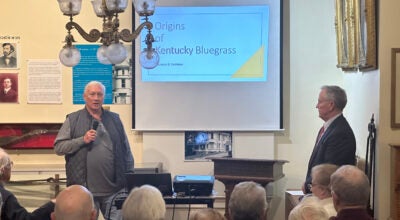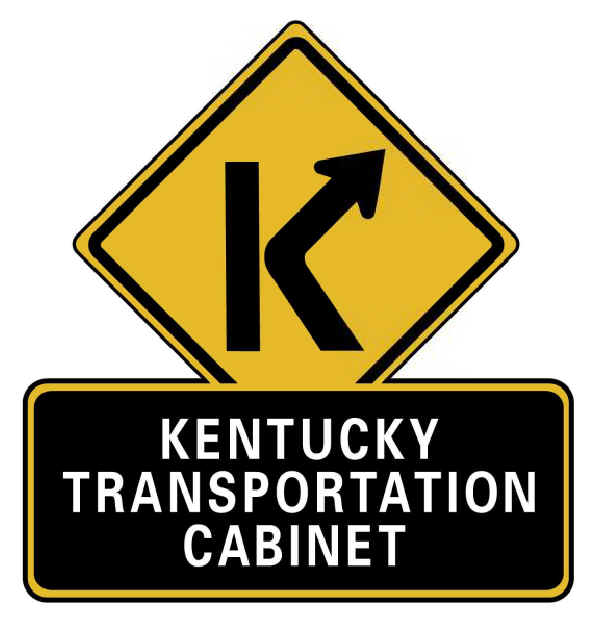Walking together – apart: Recovery groups must change how they meet because of coronavirus
Published 11:10 am Tuesday, April 28, 2020
|
Getting your Trinity Audio player ready...
|
Editor’s note: Coping With COVID-19 is a multi-part series about the very personal ways Winchester and Clark County have been impacted by the outbreak of the novel coronavirus (COVID-19).
Fellowship is at the heart of what makes substance abuse recovery groups work.
For those with alcohol or drug addictions, the importance of meeting regularly with others experiencing the same struggles can’t be understated. It’s about empathy and accountability.
But during the coronavirus pandemic, when being in close proximity to other people can be unsafe, peer support group meetings look different from what they did a couple of months ago. Instead of sitting around in a circle in a parish hall, members now must meet online by using Zoom or another video conferencing app.
Dickie Everman of Winchester is the Southeast Region director for Celebrate Recovery, a faith-based recovery program for substance abuse and other problems.
Until the coronavirus crisis, he said, CR didn’t allow online meetings because of concerns about confidentiality and safety.
“I’ll be honest with you,” he said. “I didn’t want to do it at first, but it kept lingering on, and then finally, we’ve got to do something.”
What CR came up with is Celebrate Recovery Crisis Response, which allows groups to do Zoom meetings as long as they follow certain guidelines, such as being in a different room from other people in the house and wearing earphones so someone in the next room doesn’t hear what others in the meeting are saying.
There have been problems, Everman said, with people hacking into the meetings and showing inappropriate content, so those who come online may have to remain in a virtual “waiting room” until the person running the meeting invites them into the meeting.
Everman said he is grateful CR allows the online meetings, but they aren’t as effective as the real thing in getting people to participate. One reason, he said, may be that some people don’t have the technology or access to the internet, or don’t want to learn how to use it.
“On a regular Tuesday night, I would have anywhere from 80 to 100 people” come to a CR meeting, but he only has about 30 now who are participating in the Zoom meetings.
“So where are those others, and what are they doing without a meeting?” he said.
Everman is worried many of them are reverting to their addictive behavior. The evidence, he said, is that overdoses are on the rise.
“We’ll just try to make it through this the best we can,” Everman said. “Once the pandemic is over and we go back to the regular way, we probably won’t have online groups anymore.”
Everman’s wife, JuaNita, is co-founder, with Program Director Amber Hull, of Achieving Recovery Together in Winchester. It is part of a national organization.
Unlike Celebrate Recovery, ART is not faith-based, and it only deals with substance abuse.
ART can help patients get into medical detox, refer them to counseling or outpatient services and offer support groups. They are also working on starting a 12-step support program similar to Alcoholics Anonymous.
ART, too, has had to make the switch to virtual meetings.
“We’ve had to change how we communicate” during the coronavirus lockdown, JuaNita Everman said. “Our center isn’t open to peers or visitors. Our staff is there, and everything is done by phone or Zoom.”
But instead of having support group meetings only two mornings a week, they now have them every morning, so people have more options.
“There’s been several relapses during this time, and we hate that, but we feel like we are doing all that we can to be here,” JuaNita said. “They’re the ones who have to make the call.”
Pat Watts, a member of Alcoholics Anonymous and Narcotics Anonymous, has been “clean and sober for 37 years,” she said, but is involved in helping others in recovery.
She has found that the online meetings are not as good as the real thing.
There are “no hugs, no holding somebody’s hand, no handing them a tissue when they are crying, no pat on the back,” she said. “It’s better having the video chat so you can at least see faces” rather than having a telephone conference call, but “it’s not the same. It’s more like watching TV or something. It’s much less personal.”
And personal contact is a big part of peer support.
“When you’re in the room, you can see people’s expressions and their body language a lot better,” and just be there for them, she said.
“There is a bond between us that you don’t find anywhere else,” she said.
Watts said, as with Celebrate Recovery and Achieving Recovery Together, there aren’t as many people in the online meetings as there were in the actual meetings. It’s maybe half or a third of what it was before.
“As we go on, there are fewer and fewer people,” she said.
There are many people she has not seen since the online meetings started, and she wonders where they are or whether they’re attending other meetings.
She mentioned that Clark County’s Drug Court program has told its clients they can’t attend AA meetings.
Watts said there has been a rise in overdose deaths during the virus outbreak — not only nationally, but also in Clark County.
Clark County Coroner Robert Gayheart said Monday there were three local overdose deaths in the county over the weekend.
Watts addicts were used to being isolated when they were using drugs. Now they are in that situation again, and they have access to government money intended to help those struggling with job losses, furloughs and reduced hours during the pandemic.
“People are really depressed because of the isolation, and now they have all this money coming, and it’s going to be very hard for them not to spend it on drugs” or at the liquor stores, she said.







